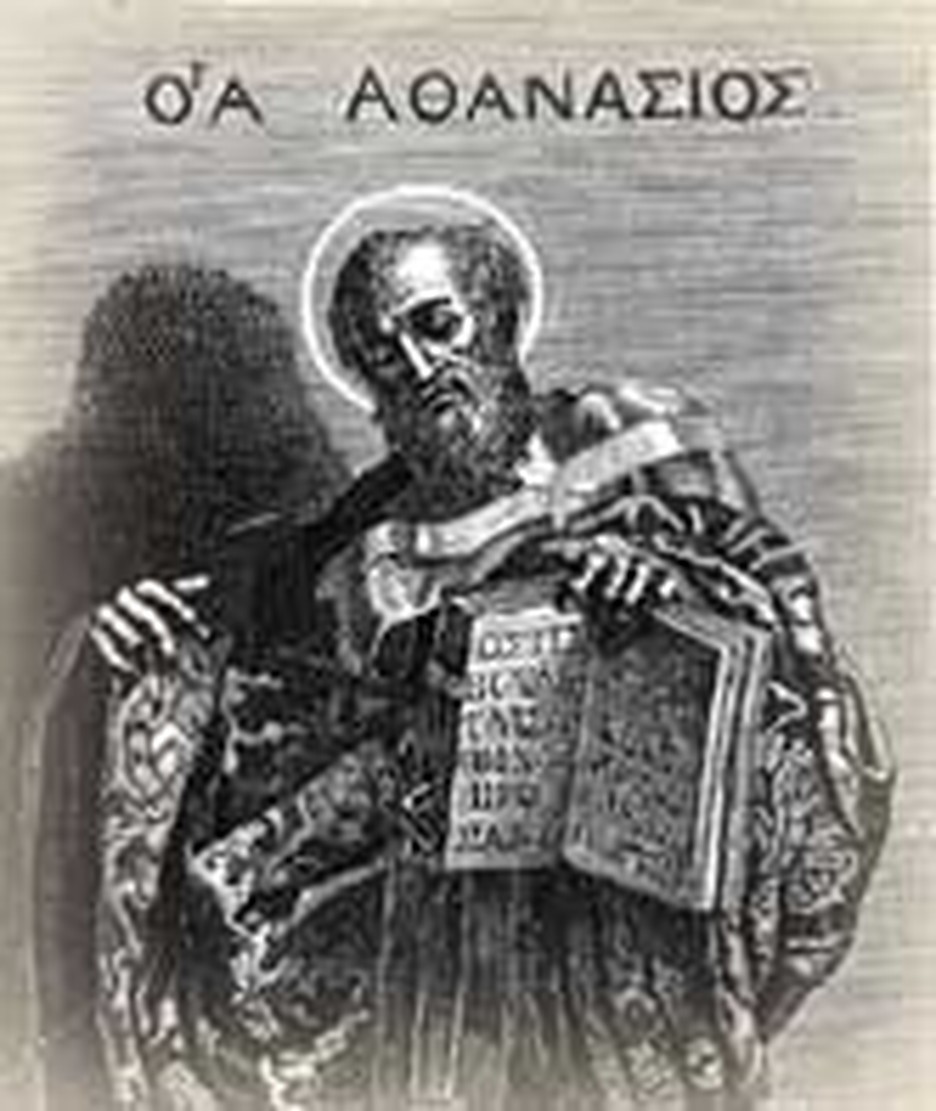
When you open a Bible, you see at once that it is made up of many shorter books. Do you ever wonder how people decided which books should be included in the Bible?
It was important for Christians to know what was true scripture. For one thing, they needed to know what teachings they should follow. For another, they needed to know what writings they should protect if they had to, because they didn't want to be tortured or killed trying to save a book that wasn't God's word. About a hundred and thirty years after Christ's resurrection, bishops began making lists of the writings that they regarded as scripture. Their lists were usually close to each other but did not always agree exactly.
At the beginning of the year 367, Athanasius, bishop of Alexandria sat down to write an Easter letter to his church. He wrote these "festal" letters every year to put his people into the right frame of mind for celebrating Easter.
This year, he saw that his people were being fooled by books that claimed to be scripture but weren't. For instance, they might wonder if the Epistle of Barnabas was to be obeyed. Or they might fall for The Gospel of Peter by the Gnostics, a group who claimed secret knowledge of God. Peter's name was given to the work to give it creditability although he had nothing to do with writing it. Athanasius realized that the best defense against error was a clear understanding of scripture... but which writings were actually scripture? In his festal letter, written on this day, January 7, 367, he wrote, "Inasmuch as some have taken in hand to draw up for themselves an arrangement of the so-called apocryphal books and to intersperse them with the divinely inspired scripture...it has seemed good to me...to set forth in order the books which are included in the canon and have been delivered to us with accreditation that they are divine."
The church already accepted the books of the Jewish scripture as inspired by the Holy Spirit. These became our Old Testament. The church also agreed that books and letters written by the apostles or by writers under their direct influence were probably scripture if the books had been used for a long time by the church. These became our New Testament. Athanasius thought it best to list the trustworthy books. He was the first man to compile a list of New Testament books as we know them. His list for the Old Testament did not include the apocryphal books or Esther.
Athanasius had a high regard for scripture. He wrote, "These are fountains of salvation, that they who thirst may be satisfied with the living words that they contain. In these alone is proclaimed the doctrine of godliness. Let no man add to these, neither let him take anything from these. For concerning these the Lord put to shame the Sadducees, and said, 'Ye do err, not knowing the Scriptures.' And he reproved the Jews, saying, 'Search the Scriptures, for these are they that testify of me.'"
Because of the importance of the city of Alexandria, Athanasius was a well-known bishop. Much of his life was spent battling heresy, especially Arianism, which denied the divinity of Christ. His strong views got him into trouble with the emperor and he was forced into exile five times. Each time, the Egyptians welcomed him back. Because of his influence, his list of books helped settle the question of which books do and don't belong in the Bible. People recognized the truth of what the great bishop wrote. The books of the Bible are not God's word because Athanasius said so; they are in the Bible because almost everyone in the church recognized them as coming from God. Athanasius was only expressing the conviction and practice of most Christians across the Roman Empire.
Bibliography
- Aland, Kurt. Saints and Sinners; men and ideas in the early church. Philadelphia: Fortress Press, 1970.
- Bruce, F. F. The New Testamant Documents; Are they Reliable? Grand Rapids, Michigan: Erdmans, 1971.
- Hough, Lynn Harold. Athanasius: the hero. Cincinnati: Jennings & Graham, 1906.
- "Athanasius" and "Canon of Scripture." The Oxford Dictionary of the Christian Church. Edited by F. L. Cross and E. A. Livingstone. Oxford, 1997.
Last updated May, 2007.








